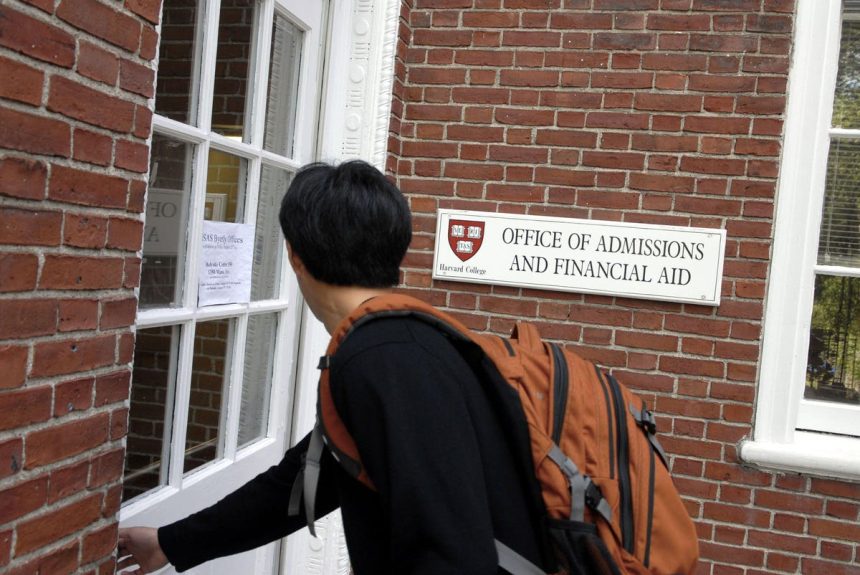In the wake of the Supreme Court’s historic decision to end race-conscious admissions at U.S. colleges and universities, another admissions policy has quickly emerged as a target for reform—legacy admissions. In a rare instance of accord, both Justice Sotomayor and Justice Gorsuch took aim at the preferential treatment given to children of donors and alums, arguing that admissions at top schools would be more equitable without the consideration of legacy status. Likewise, President Biden stated his intention to have the Department of Education “analyze what practices help build more inclusive and diverse student bodies and what practices hold that back—practices like legacy admissions and other systems that expand privilege instead of opportunity.”
Some universities such as Amherst College, MIT, and Johns Hopkins University had already eliminated the use of legacy preference prior to the Supreme Court decision, but new calls for its elimination may prompt a fresh wave of universities to eliminate legacy preferences. However, Ivy League universities seem unlikely to end legacy admissions without a fight—even amidst legal challenges and an investigation from the Department of Education’s Office for Civil Rights, announced this morning.
Last week, Wesleyan University became the first university to announce their intention to end consideration of legacy status in admissions following the Supreme Court ruling on affirmative action. In an interview with NPR, Wesleyan president Michael Roth stated that “legacy admissions has been only a small part of [their] program for several years,” and that while the university had considered ending the practice in the past, “it was a popular program among some alumni, and [he] didn’t see the urgency of doing away with a program that only affected very few students a year.”
Legacy consideration in admissions not only benefits alumni and their children, but also the universities that implement it. Children of alumni are generally more likely to enroll if accepted, improving the yield rate for top schools—a metric commonly used as a ranking criterion. Despite the benefits for alumni and institutions, however, the vast majority of the public disapproves of legacy admissions. According to a 2022 Pew Research Center poll, 75% of Americans believe that an applicant’s legacy status should not be a factor in admissions decisions—and that number has risen in recent years, as only 68% of those polled in 2019 expressed the same opinion.
The Supreme Court case against Harvard University and UNC’s race-conscious admissions shone light on the degree to which legacy consideration benefits Ivy League applicants—information which has historically been safeguarded from the public. According to a study submitted on behalf of the plaintiff, “If [a typical student with a baseline probability of admission at 10%] were switched to a legacy, holding all other characteristics fixed, the admission probability would rise to 49%.” In other words, legacy status could increase a student’s probability of admission nearly fivefold over a similar applicant who is not the relative of an alum. Moreover, the study found that “nearly 70% of legacy applicants are white,” compared to just 40% of the broader applicant pool.
Despite these unfavorable statistics, Ivy League universities have demurred on the subject of legacy—or subtly pushed against calls to end it. In a statement regarding Connecticut House Bill 5034, which proposed a ban on legacy admissions, Yale University Dean of Undergraduate Admissions Jeremiah Quinlan argued emphatically that legislating a ban on legacy consideration represented governmental overreach into private educational institutions. He further argued: “We are skeptical that a ban on legacy preferences in admissions would have a material effect on representation of low-income, first-generation, or under-represented students. Indeed, Yale has already realized a dramatic increase in the representation of these students on our campus in the past decade, without eliminating other admissions preferences.”
Despite such statements, the end of affirmative action has emboldened many activists to take steps against elite colleges to end legacy admissions. In early July, a coalition of civil rights activist groups announced that they had filed a federal civil rights complaint against Harvard, alleging that the use of legacy admissions disproportionately favored wealthy, white applicants.
In a press release for Lawyers for Civil Rights, the groups state: “For the Class of 2019, about 28% of the class were legacies with a parent or other relative who went to Harvard. Qualified and highly deserving applicants of color are harmed as a result, as admissions slots are given instead to the overwhelmingly white applicants who benefit from Harvard’s legacy and donor preferences. Even worse, this preferential treatment has nothing to do with an applicant’s merit. […] This custom, pattern, and practice is exclusionary and discriminatory. It severely disadvantages and harms applicants of color.”
Today, the Department of Education announced that they would investigate Harvard’s consideration of legacy status and the racial implications of the practice. If the case is litigated up to the Supreme Court, it is likely that the end of legacy admissions will be inevitable. However, elite universities’ resistance has indicated that litigation is the only path to ending the practice at the most exclusive institutions of higher education.
Read the full article here










